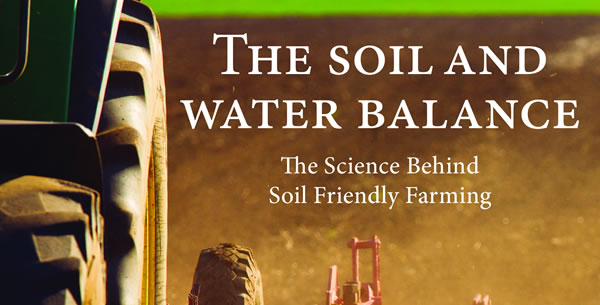Written by Alastair Leake (Director of Policy & Allerton Project)
Yesterday (29 April), we heard that soil damage – particularly erosion and degradation – could be fuelling climate change. Whilst it is clearly worrying to many who read it this news, released ahead of an important policy report on biodiversity and ecosystem services, is right to highlight the importance of our soils. There is little question that we must act now to change the way we manage this important asset.
With no significant new soil legislation since the 1947 Agriculture Act, which in itself was weak on soil protection and has led to the problems we now face, our departure from the Common Agricultural Policy provides a unique opportunity for us to address some of our most challenging environmental issues.
The Government has made several encouraging comments, with Secretary of State for Environment, Food and Rural Affairs, Michael Gove noting that “there is an emergency in our soils. The signal is at red, the alarm bells are ringing, and we have heard it in Defra”. Despite this, we remain concerned.Of the first 49 proposals selected for evaluation in the Environmental Land Management Test & Trials Proposals not one includes any evaluation of how we might tackle soil health improvements.
There is no quick fix. Different agricultural practices each have their own strengths and weaknesses, and we must recognise the vital role our farmers provide in food production. What is needed is a blended funding model which recognises that farmers and landowners benefit financially from improved soil health through increased output, and one where agricultural supply chain businesses can also contribute. In short, we need a soils policy which takes a rotational approach with the correct balance of exploitative and restorative phases which will require incentives to achieve. Such an approach ensures that public money brings public benefits too, beyond those of carbon sequestration and flood prevention, which are separate from the issues of soil quality, stability, condition and health that concern us.
We await the full IPBES report on Monday 6 May and will continue to use our research to show the true state of our soils, as well as what can be done to improve them.

Get the inside track on soil and water research
Priced now at just £4.95 (50% off), The Soil & Water Balance is a handy paperback which provides the inside track on soil and water research.
Presented in a Q&A style, much like our popular Moorland Balance, this 100-page book looks at the problems and solutions on topics ranging from erosion and contamination, to the impact on songbirds and other wildlife.
Combining years of research at the GWCT's Allerton Project demonstration farm with tens of external scientific papers, this is a fascinating study of how farming can adapt to the challenges it currently faces.
View Book >
or
Buy Now - £4.95 >
100% Secure. All Credit & Debit cards, PayPal, Apple Pay and Google Pay accepted.
